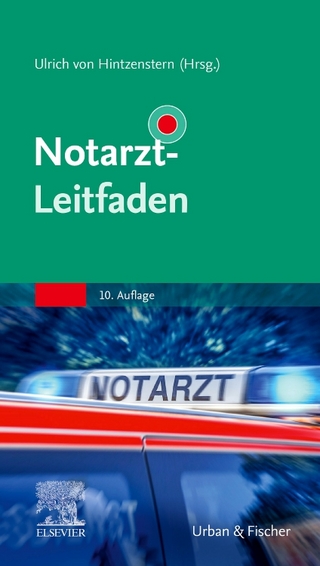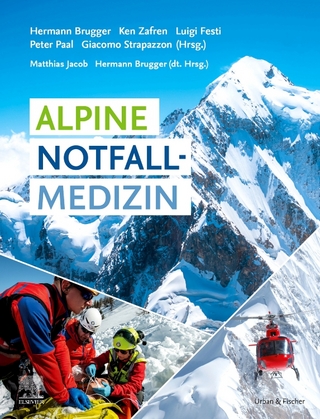
Assessing and Treating Youth Exposed to Traumatic Stress
American Psychiatric Association Publishing (Verlag)
978-1-61537-142-6 (ISBN)
Assessing and Treating Youth Exposed to Traumatic Stress is a cogent, caring, and comprehensive response to the reality that many children live lives of constant threat, fear, and confusion while lacking opportunities for positive social interactions, stimulation, and empowerment. Although the book is written for mental health clinicians, teachers and others who support traumatized youth will find this book an essential addition to their professional libraries. Identifying these children is the first step, and the importance of careful assessment through use of the clinical interview—in both individual and group settings—is emphasized. In addition, the population with posttraumatic stress disorder (PTSD) is highly diverse in terms of presentation and target symptoms, and the book explores differences in type, duration, and accumulation of trauma; age of insult; stress vulnerability; family history; and other individual factors. Nearly a dozen of treatment options are presented in the book, and they are distinguished by setting, such as clinic, home, or school, and modality, such as psychotherapy or pharmacology. Attention is also paid to preventive measures, most of which are school- or group-based, to increase resiliency where possible.
The book addresses critically important issues in treating young people with PTSD in chapters that are articulate, accessible, and actionable:
• Because PTSD rarely exists alone, suggestions on how to manage the challenging issues surrounding common comorbidities, such as mood and anxiety disorders, are examined in depth. Even when individuals do not meet the full clinical criteria for PTSD, elevated rates of mood and anxiety disorders have been identified.
• A separate posttraumatic diagnosis for preschool children was introduced in DSM-5, and the book highlights the special sensitivity and careful questioning necessary to elicit detailed histories and contextualize trauma in the very young because of their limited vocabulary and concrete thinking.
• Although psychosocial treatments are the first line of intervention when treating youth with PTSD symptoms, there is a role for pharmacological treatment, and a separate chapter is devoted to the use of medications.
• Whenever appropriate, the chapters take a developmental approach to illustrate how treatment techniques are applied to preschoolers, school-age children, adolescents, and transitional-age youth.
• In today's era of mass shootings and natural disasters, there is great need for effective interventions for large groups of young people. The chapters on school-based assessment and interventions present information on screening; disaster prevention, response, and recovery programs; and evidence-based targeted trauma intervention across developmental levels.
The editor, Director of the Stanford University Early Life Stress Research Program in Child and Adolescent Psychiatry, has assembled a list of contributors who are at the forefront of clinical research in this important area of focus, and Assessing and Treating Youth Exposed to Traumatic Stress reflects the authors' belief that society, as a whole, must ensure that children who face adversity have the opportunity to develop to their full potential.
Victor G. Carrión, M.D., is John A. Turner, M.D. Endowed Chair of Child and Adolescent Psychiatry; Professor and Vice-Chair, Department of Psychiatry and Behavioral Sciences; and Director, Early Life Stress and Pediatric Anxiety Program, at Stanford University.
Contributors
Preface
Part I: Assessment
Chapter 1. The Clinical Interview
Chapter 2. Assessment in Schools or Other Large Groups
Chapter 3. Assessment of Individuals
Chapter 4. The Forensic Evaluation
Part II: Treatment
Chapter 5. General Principles of Psychotherapy
Chapter 6. Play Therapy
Chapter 7. School-Based Interventions
Chapter 8. UCSF Healthy Environment and Response to Trauma in School (HEARTS)
Chapter 9. Trauma-Focused Cognitive-Behavioral Therapy
Chapter 10. Cue-Centered Therapy
Chapter 11. Child-Parent Psychotherapy
Chapter 12. Eye Movement Desensitization and Reprocessing and Dialectical Behavior Therapy
Chapter 13. Mindfulness and Yoga
Chapter 14. Psychopharmacology
Chapter 15. Addressing Comorbidity
Part III: Associated Clinical Issues
Chapter 16. Dissociation
Chapter 17. Sleep
Chapter 18. Self-Injurious Behaviors and Suicidality
Chapter 19. Substance Use
Part IV: Systems of Care
Chapter 20. Full Spectrum of Care
Chapter 21. Integrated Models
Chapter 22. Global Mental Health and Trauma
Chapter 23. Technology-Facilitated Interventions
Index
| Erscheinungsdatum | 09.02.2019 |
|---|---|
| Zusatzinfo | 15 Figures; 35 Tables, unspecified |
| Verlagsort | VA |
| Sprache | englisch |
| Maße | 152 x 229 mm |
| Gewicht | 848 g |
| Themenwelt | Medizin / Pharmazie ► Medizinische Fachgebiete ► Notfallmedizin |
| Medizin / Pharmazie ► Medizinische Fachgebiete ► Psychiatrie / Psychotherapie | |
| ISBN-10 | 1-61537-142-7 / 1615371427 |
| ISBN-13 | 978-1-61537-142-6 / 9781615371426 |
| Zustand | Neuware |
| Informationen gemäß Produktsicherheitsverordnung (GPSR) | |
| Haben Sie eine Frage zum Produkt? |
aus dem Bereich


